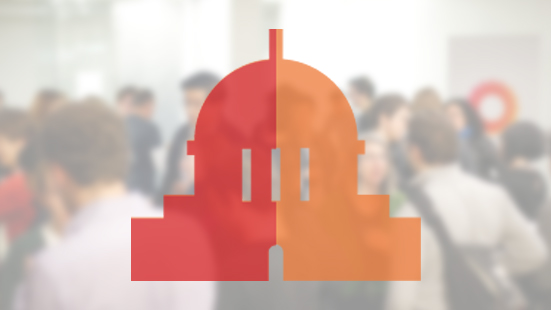Our weekly take on some of the biggest stories in startup and tech policy:
Startups Defend Net Neutrality Order. The FCC is facing ongoing litigation in the DC Circuit Court of Appeals over the net neutrality rules it passed earlier this year, and on Monday, the court received briefs from a variety of companies and organizations supporting the FCC’s rules. Engine filed a brief along with a group of innovative startups that included Dwolla, Fandor, Foursquare, General Assembly, GitHub, Imgur, Keen IO, Mapbox, and Shapeways. We argue that the FCC’s decision to reclassify broadband as a telecommunications service was necessary to preserve the continued growth of the startup sector, which has in turn driven consumer demand for broadband and incentivized companies to invest in their networks. The court will hear oral arguments in the case on December 4 and will likely render its decision sometime next year.
SEC To Finalize Crowdfunding Rules. Sources at the Securities and Exchange Commission have told Politico the agency is likely to finalize long-awaited crowdfunding rules in late October or early November. SEC rulemaking will put Title III of the JOBS Act into effect, which could radically expand capital access for startups—though the statute does contain some burdensome requirements for companies. While the startup community will be excited to see any action from the SEC in light of an extended delay, we need to ensure that whatever regulatory regime the SEC adopts is well-calibrated and accessible to the small, emerging companies that could most benefit from new sources of capital.
Bush Campaigns Against Open Internet. Most of the Republican candidates in the 2016 presidential race have come to realize that an overwhelming majority of the public supports net neutrality rules (including 81% of Republicans) and have refrained from loudly criticising the FCC’s Open Internet Order. But this week, Former Governor Jeb Bush expressed his opposition to net neutrality (a policy he onced called “one of the craziest ideas [he’s] ever heard”), arguing that preventing ISPs from abusing their gatekeeper power does nothing to enhance consumer welfare. Bush’s comments run counter to both the FCC and the conservative DC Circuit Court of Appeals, which have recognized that net neutrality rules and foster the growth of the edge providers and promotes investment in broadband networks, resulting in better and more affordable service for consumers. It’s a reminder that startups, consumers, and everyone else who benefits from the open Internet should keep a close eye on this presidential race.
Administration Taking Steps to Promote High-Speed Broadband Access. On Monday, the Broadband Opportunity Council published its first report, which includes 36 actions that federal agencies will take to encourage broadband deployment. These actions require no new funding, “but existing sources of funding are being opened up and barriers to deployment are being brought down.” Of particular note is that the White House refers to broadband as a “core utility,” like electricity or water. We tend to agree - broadband is no longer a luxury. Connectivity is core to innovation and the ability of startups to reach customers and scale, and we are pleased to see the Administration taking these steps to bring access to underserved populations and areas of the country.
White House Considers Encryption. Thanks to some leaked documents from the White House, it’s rumored that President Obama may come out in opposition to a law that would require firms be able to unlock their customer’s encrypted smartphones and applications. Up to this point, law enforcement has argued the need for backdoors to encryption to ensure national security and safety. This sort of advocacy from the White House would help repair global trust in the US government, countering the narrative in Europe that the US is trying to expand its surveillance activities. Meanwhile, the American Civil Liberties Union (ACLU) and other privacy advocates continue to push the importance of US government’s use of encryption to promote both personal privacy and national security.
“Facebook giveth and Facebook taketh away.” The Wall Street Journal reported this week that dozens of startups have “shut down, been acquired or overhauled their business” as a result of Facebook’s new policies limiting outsider access to some of its users’ date. Facebook’s rules, which went into place in May, restrict what data can be used by third parties like startups, academics, politicians or organizations. Other social media giants like LinkedIn and Twitter have enacted similar policies, signaling to the startup world that if you are building a product or service that relies on data from social media sites, that data may not always be available...
ECJ Advisor Deals Blow to U.S. Tech Companies. In other data related news, a European Court of Justice (ECJ) advisor issued an opinion this week that the “safe harbour” agreement allowing for data transfers between the EU and the U.S. is “invalid” due to growing concerns around U.S. surveillance practices. While the lawyer’s opinion is not legally binding, if cemented by a formal ruling it would create a headache for U.S. tech companies who could face data localization requirements in any EU countries.
Women Tech Leaders. Fortune profiles some of the powerful female talent Google has been able to attract at the executive level, including Ruth Porat, a recent addition who has led the transition from Google to Alphabet. Many of these executives after building their experience at Google have left to grow smaller tech companies. Meanwhile, Mary Lou Jepsen of Facebook has a different take: she sees many senior women leaving because they feel isolated by the tech industry.














